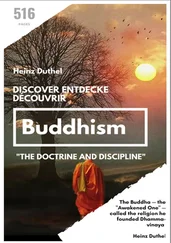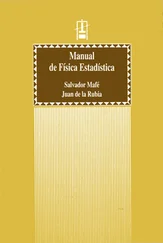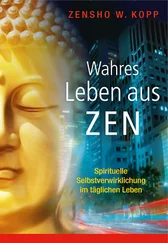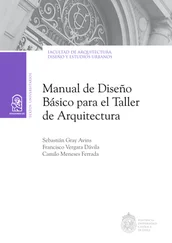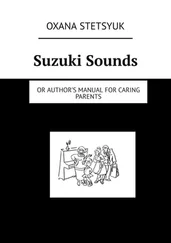Teitaro Suzuki - Manual of Zen Buddhism
Здесь есть возможность читать онлайн «Teitaro Suzuki - Manual of Zen Buddhism» весь текст электронной книги совершенно бесплатно (целиком полную версию без сокращений). В некоторых случаях можно слушать аудио, скачать через торрент в формате fb2 и присутствует краткое содержание. Жанр: Религиоведение, Религия, Руководства, на английском языке. Описание произведения, (предисловие) а так же отзывы посетителей доступны на портале библиотеки ЛибКат.
- Название:Manual of Zen Buddhism
- Автор:
- Жанр:
- Год:неизвестен
- ISBN:нет данных
- Рейтинг книги:3 / 5. Голосов: 1
-
Избранное:Добавить в избранное
- Отзывы:
-
Ваша оценка:
- 60
- 1
- 2
- 3
- 4
- 5
Manual of Zen Buddhism: краткое содержание, описание и аннотация
Предлагаем к чтению аннотацию, описание, краткое содержание или предисловие (зависит от того, что написал сам автор книги «Manual of Zen Buddhism»). Если вы не нашли необходимую информацию о книге — напишите в комментариях, мы постараемся отыскать её.
Manual of Zen Buddhism — читать онлайн бесплатно полную книгу (весь текст) целиком
Ниже представлен текст книги, разбитый по страницам. Система сохранения места последней прочитанной страницы, позволяет с удобством читать онлайн бесплатно книгу «Manual of Zen Buddhism», без необходимости каждый раз заново искать на чём Вы остановились. Поставьте закладку, и сможете в любой момент перейти на страницу, на которой закончили чтение.
Интервал:
Закладка:
Where the true is left to itself,
There is nothing false in it, which is Mind itself.
When Mind in itself is not liberated from the false,
There is nothing true, nowhere is the true to be found.
A conscious being alone understands what is meant by “moving”; [6]
To those not endowed with consciousness, the moving is unintelligible;
If you exercise yourself in the practice of keeping your mind unmoved, [i.e. in a quietistic meditation],
The immovable you gain is that of one who has no consciousness.
If you are desirous for the truly immovable,
The immovable is in the moving itself,
And this immovable is the [truly] immovable one;
There is no seed of Buddhahood where there is no consciousness.
Mark well how varied are aspects [of the immovable one],
And know that the first reality is immovable;
Only when this insight is attained,
The true working of Suchness is understood.
I advise you, O students of the Truth
To exert yourselves in the proper direction;
Do not in the teaching of the Mahayana
Commit the fault of clinging to the relative knowledge [7]of birth and death.
Where there is an all-sided concordance of views
You may talk together regarding the Buddha's teaching;
Where there is really no such concordance,
Keep your hands folded and your joy within yourself.
There is really nothing to argue about in this teaching;
Any arguing is sure to go against the intent of it;
Doctrines given up to confusion and argumentation
Lead by themselves to birth and death.
IV. YOKA DAISHI'S “SONG OF ENLIGHTENMENT” [1]
1. Knowest thou that leisurely philosopher who has gone beyond learning and is not exerting himself in anything?
He neither endeavours to avoid idle thoughts nor seeks after the Truth;
[For he knows that] ignorance in reality is the Buddha-nature,
[And that] this empty visionary body is no less than the Dharma-body.
2. When one knows what the Dharma-body is, there is not an object [to be known as such],
The source of all things, as far as its self-nature goes, is the Buddha in his absolute aspect;
The five aggregates ( skandha ) are like a cloud floating hither and thither with no fixed purpose,
The three poisons ( klesa ) are like foams appearing and disappearing as it so happens to them.
3. When Reality is attained, it is seen to be without an ego-substance and devoid of all forms of objectivity,
And thereby all the karma which leads us to the lowest hell is instantly wiped out;
Those, however, who cheat beings with their false knowledge,
Will surely see their tongues pulled out for innumerable ages to come.
4. In one whose mind is at once awakened to [the intent of] the Tathagata-dhyana
The six paramitas and all the other merits are fully matured;
While in a world of dreams the six paths of existence are vividly traced,
But after the awakening there is vast Emptiness only and not even a great chiliocosm exists.
5. Here one sees neither sin nor bliss, neither loss nor gain;
In the midst of the Eternally Serene no idle questionings are invited;
The dust [of ignorance] has been since of old accumulating on the mirror never polished,
Now is the time once for all to see the clearing positively done.
6. Who is said to have no-thought? and who not-born?
If really not-born, there is no no-birth either;
Ask a machine-man and find out if this is not so;
As long as you seek Buddhahood, specifically exercising yourself for it, there is no attainment for you.
7. Let the four elements go off your hold,
And in the midst of the Eternally Serene allow yourself to quaff or to peck, as you like;
Where all things of relativity are transient and ultimately empty,
There is seen the great perfect enlightenment of the Tathagata realized.
8. True monkhood consists in having a firm conviction;
If, however, you fail to have it, ask me according to your ideas, [and you will be enlightened].
To have a direct understanding in regard to the root of all things, this is what the Buddha affirms;
If you go on gathering leaves and branches, there is no help for you.
9. The whereabouts of the precious mani -jewel is not known to people generally,
Which lies deeply buried in the recesses of the Tathagata-garbha;
The sixfold function miraculously performed by it is an illusion and yet not an illusion,
The rays of light emanating from one perfect sun belong to the realm of form and yet not to it.
10. The fivefold eye-sight [2]is purified and the fivefold power [3]is gained,
When one has a realization, which is beyond [intellectual] measurement;
There is no difficulty in recognizing images in the mirror,
But who can take hold of the moon reflected in water?
11. [The enlightened one] walks always by himself, goes about always by himself;
Every perfect one saunters along one and the same passage of Nirvana;
His tone is classical, his spirit is transparent, his airs are naturally elevated,
His features are rather gaunt, his bones are firm, he pays no attention to others.
12. Sons of the Sakya are known to be poor;
But their poverty is of the body, their spiritual life knows no poverty;
The poverty-stricken body is wrapped in rags,
But their spirit holds within itself a rare invaluable gem.
13. The rare invaluable gem is never impaired however much one uses it,
And beings are thereby benefited ungrudgingly as required by occasions;
The triple body [4]and the fourfold jnana [5]are perfected within it,
The eightfold emancipation [6]and the sixfold miraculous power [7]are impressed on it.
14. The superior one has it settled once for all and forever
The middling one learns much and holds much doubt;
The point is to cast aside your soiled clothes you so dearly keep with you;
What is the use of showing off your work before others?
15. Let others speak ill of me, let others spite me;
Those who try to burn the sky with a torch end in tiring themselves out;
I listen to them and taste [their evil-speaking] as nectar;
All melts away and I find myself suddenly within the Unthinkable itself.
16. Seeing others talk ill of me, I acquire the chance of gaining merit,
For they are really my good friends;
When I cherish, being vituperated, neither enmity nor favouritism,
There grows within me the power of love and humility which is born of the Unborn.
17. Let us be thoroughgoing not only in inner experience but in its interpretation,
And our discipline will be perfect in Dhyana as well as in Prajna, not one-sidedly abiding in Sunyata (emptiness);
This is not where we alone have finally come to,
But all the Buddhas, as numerous as the Ganga sands, are of the same essence.
18. The lion-roaring of the doctrine of fearlessness—
Hearing this, the timid animals' brains are torn in pieces,
Even the scented elephant runs wild forgetting its native dignity;
It is the heavenly dragon alone that feels elated with joy, calmly listening [to the lion-roaring of the Buddha].
Интервал:
Закладка:
Похожие книги на «Manual of Zen Buddhism»
Представляем Вашему вниманию похожие книги на «Manual of Zen Buddhism» списком для выбора. Мы отобрали схожую по названию и смыслу литературу в надежде предоставить читателям больше вариантов отыскать новые, интересные, ещё непрочитанные произведения.
Обсуждение, отзывы о книге «Manual of Zen Buddhism» и просто собственные мнения читателей. Оставьте ваши комментарии, напишите, что Вы думаете о произведении, его смысле или главных героях. Укажите что конкретно понравилось, а что нет, и почему Вы так считаете.



